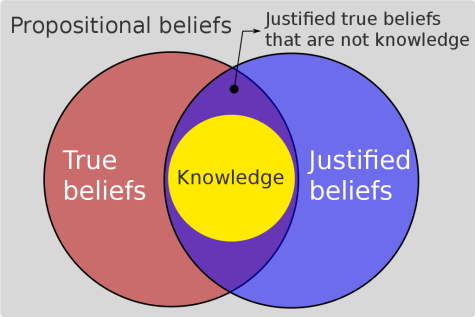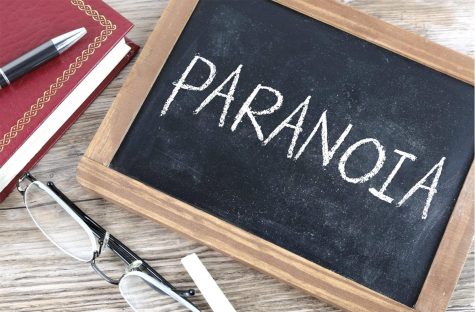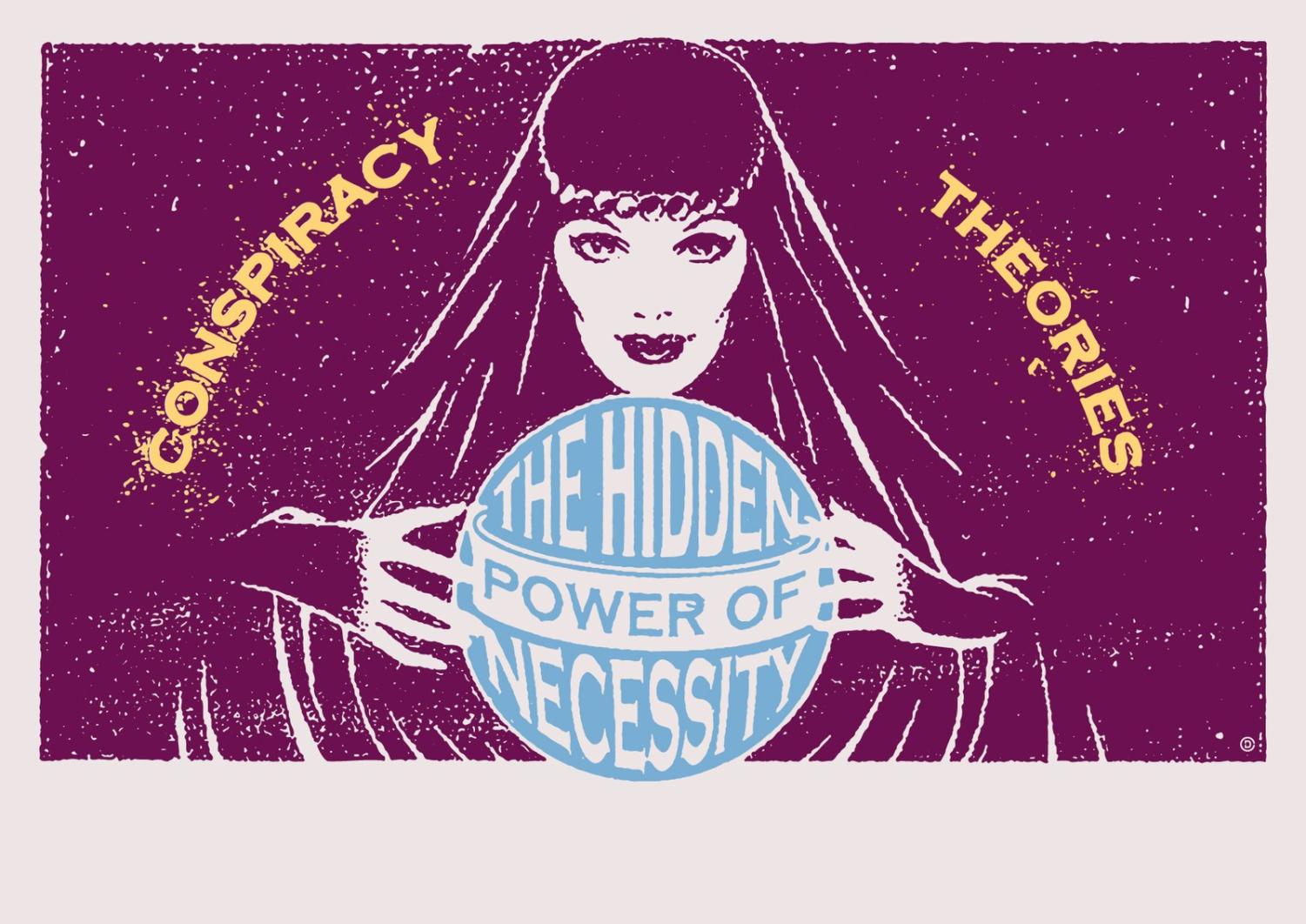Conspiracy theories in the assessment of psychology and ischooler’s favorite theories
March 15, 2022
Guess what: the Earth is not round. The Earth is a flat disc with the Arctic Circle in the center with Antarctica surrounding the edges. NASA employees guard Antarctica so people do not fall off the edge of the Earth. That is why scientists make up the main community of Antarctica.

https://physicsworld.com/a/fighting-flat-earth-theory/
This is a popular conspiracy theory that has been conspiring around for decades, being named the Flat Earth theory.
Whether you believe it or not, many people around the world trust this theory wholeheartedly.
When you search up the two words, “conspiracy theory” on Google, more than 500 million results show up each time. A conspiracy theory is an explanation for an event that blames the situation on another group or organization, portraying them as sinister and evil. There are countless different conspiracy theories around the world and new ones are constantly being made.
Along with that, they have existed for a while now.
The Psychology Behind Conspiracy Theories
Dr. Ron Garb, an MD Psychiatrist, living in Houston, Texas states, “Conspiracy theories are not new, you know, they have been present since time began.”
But the real question is, why have conspiracy theories been so popular? And why have people been believing them so effortlessly?
John Cook, Ph.D. and co-author of “The Conspiracy Theory Handbook,” puts it as, “When people feel threatened and out of control, it’s natural to want to feel more control and bring order to the randomness by resorting to conspiracy theories.”
Meaning, psychology plays a big role and ties in with conspiracy theories.
According to Journals.SagePub.com, “Belief in Conspiracy theories appears to be driven by motives that can be characterized as epistemic.”
By simple definition, “Epistemicity is just a natural tendency for people to want to know something,” Dr. Ron Garb mentions.
To add on, he supports this by saying, “Everybody wants to know, you know, human beings, like the idea of knowing, and that’s called epistemic.”

https://commons.wikimedia.org/wiki/File:Justified_True_Belief_model_of_knowledge.svg
But how does this new term relate to psychology? Well, epistemic knowledge refers to the understanding of the constructs and characteristic features of science. Epistemic knowledge also explains how these constructs can be used to justify specific claims.
The photo above explains the different parts of epistemology. Epistemology involves a combination of truths and beliefs, as well as knowledge.
Along with epistemology, the emotions people convey while talking about conspiracy theories tend to follow a pattern.
Dr. Karen Brown, an MD Psychiatrist, who also lives in Houston, Texas, states that her patients when addressing conspiracy theories, all seem to convey a pessimistic emotion.
“Usually very negative emotions, like hatred towards the person or people they think are behind this [conspiracy theory].” In this quote, she is referring to both stories of patients in general and patients from her practice.
With conspiracy theories being a negative topic to talk about, they also affect people’s mental state in a harmful way.
When asked whether or not conspiracy theories affect people positively or negatively, Karen Brown states, “Negative. Negative because there’s a lot of negative emotion that it [conspiracy theories] stirs up. So they’re kind of very consumed with all those negative feelings and that’s bad for anybody’s mental health.”
She also mentions, “It’s very stressful to be angry and full of hate.”
In addition, a study from Frontiersin.org showed that conspiracy theories should be seen as conspiracy theories that can lead to violent radicalization.
“We argue that conspiracy theories should be considered as narratives that can lead to violent radicalization and, as such, this phenomenon represents an important public health issue.” Based on this information, it can be inferred that conspiracy theories are more detrimental to civilization than people may realize.
Though it’s important to know why conspiracy theories are detrimental to people, it’s also important to know why people believe in them.
“People have a hunger to know. That’s the first thing. The second thing is maybe we could call it a social reason.” Ron Garb believes that knowledge and social aspects relate to why people believe in conspiracy theories.
He also states, “They [conspiracists] want to feel superior to other people. They want to feel as if they have a grasp and more knowledge than the next group.”
There is also a third reason among conspiracists: some tend to be narcissistic.
Psypost.org affirms that “Narcissists’ proneness to conspiracy belief is partly driven by a desire to be unique and heightened paranoia.” Narcissists are the third reason.
They also mention, “A study published in the Journal of Research in Personality sheds new light on the psychological features that tie narcissism to conspiracy thinking. The findings suggest that people who are high in grandiose narcissism are more likely to believe in conspiracy theories because of a desire to be unique. Those high in vulnerable narcissism are more likely to believe in conspiracies due to heightened paranoia.”
With the psychological aspect of conspiracy theories in mind, a careful questionnaire was developed for students at the NYC iSchool.
iSchool’s Favorite Theories and Their Thoughts
{TRIGGER WARNING: Mature picture ahead}
To learn more about the students at the iSchool, a survey was sent out and additional students were interviewed as well to learn about their thoughts on conspiracy theories, regardless if they believe in it themselves.
Kadiza Aktar is an iSchool student in the 10th grade. One of Kadiza’s first-ever conspiracy theories was about the Bermuda Triangle in which any person or vehicle that passed through that region has disappeared.
She expands onto this theory with, “I remember this one part with it which is about Atlantis. The Lost City of Atlantis that sank to the bottom of the ocean is the area now known as the Bermuda Triangle.”
She even adds, “I do believe in mythical things so that’s probably why I have a higher pull towards this theory.”
Kadiza’s interest in this theory relates to the 2018 study by PsychCentral.com that found that people who have a strong “openness to experience” tend to believe in theories. Although she does state that she only believes this theory to an extent, because she is open to mythology, she has a great interest in this theory.
Another student at the iSchool, who has chosen to remain anonymous, refers to the Big Pharma conspiracy theory.

“It’s the idea that large pharmaceutical companies are suppressing vaccines and other resources for cures to make money off of those who need treatment.”
They continue with, “It’s crazy but it probably does happen. Because when you think about it, the pharmaceutical companies make a lot of money off of treatment and medications so why would they not want this to continue and make more money,” which is a great point.
However, some of our interviewees discussed conspiracy theories they do not believe in.
For example, Chloe Braverman, a sophomore at the iSchool, talked about the Fake Moon Landing theory, in which the government has been said to have staged the whole moon landing by Apollo 11.
She explains, “I think it’s unrealistic and I don’t understand how the government would benefit from lying about something like that.”
Furthermore, a junior at the iSchool, Mario Ilievski, refers to a recent conspiracy theory: microchips being inside of the Covid vaccine.
“The theory is that Bill Gates supports these vaccines and has placed these chips inside of them so he could track people. So, if you put a quarter next to your arm, it’ll stick because it’s metal.”

https://www.flickr.com/photos/30478819@N08/51222540936
Mario’s theory is a great example of when people tend to believe in conspiracy theories.
USAToday.com states, “One reason for the pervasiveness of conspiracy theories is that they serve an important psychological function for people trying to cope with large, stressful events.”
The Covid pandemic has been a very distressing situation for most so this upsetting time leads to paranoia. People have been believing in this theory as a coping mechanism due to them being so vulnerable and stressed. For them, this is how they react to the whole situation and their lack of trust with the vaccine made them come up with a conspiracy theory.
Adding on, a new conspiracy theory was made by a sophomore at the iSchool, who has also chosen to remain anonymous.
“One thing that I absolutely believe in is that the government created dogs to control us. The United States government, at the beginning of the Cold War, created a robotic dog that has managed to blend in and take over the dog population in the U.S. to keep an eye on its citizens and report back to prevent communism spreading in the United States.”
To support their theory, they added, “Why do dogs need to go outside all the time? It’s so they can link up to the satellite and send the United States government all of the recordings it has been doing in your house when it’s not outside.”
In addition to the interviews, the survey had a dozen iSchool students report their favorite conspiracy theories.
One student wrote, “The conspiracy theories in which a lot of the deaths of famous and powerful people are linked to the government in some way.”
A couple of other students wrote theories regarding an important figure’s death as well.
“That the Queen of England is dead. She’s been dead for a few months now, and that Parliament is just pretending she is still “alive” to the press. This is because they’re not even ready to announce her death yet to go through the process of it all.”
A different student mentions, “Another ‘theory’ is that the FBI killed Martin Luther King, which I think is possibly true. There are available documents online with the FBI just straight-up admitting it.”
Adding on, some responses are about theories regarding the past.
One iSchooler just wrote their favorite conspiracy theory to be, “Area 51” while another wrote, “The Tuskegee Experiment. I wonder if the theory of purposeful infections of Africans by the French in STI vaccine testing was real.”
Here are some miscellaneous ones that are just as interesting:
“I like the one where people think that your reflection in mirrors is stopping you from entering their dimension.”
Another student wrote, “The theory in which Mattress Firm is a money-laundering scheme.”
And another mentioned a theory that most teenagers can understand: “Tik Tok is purposefully making us dumb.”
But to dig deeper than what people’s favorite conspiracy theories are, we asked iSchool students if conspiracy theories seem to have an impact on society, because it is clear that there is a rise of paranoia when people believe in conspiracy theories when it is relevant to their lives, such as the Covid pandemic.
PsychCentral.com writes that according to a 2018 study, people who tend to believe in conspiracy theories allow it to affect their
lives because of their paranoia. Because they become so vulnerable, they easily start to trust theories, even if it’s completely unreliable.

Kadiza Aktar also agrees that conspiracy theories can create fear in people’s lives due to believing in them.
“I think a lot of people, even me to a certain extent, will hear things online and watch videos that could kinda freak them out. So I do think that when people are trying to explain an event that doesn’t make sense, a lot of time they’d try to come up with more outlandish theories that will instill fear into them.”
Mario Ilievski also connects fear with conspiracy theories, but he seems to think that it could be unreasonable at times.
“Yeah, it makes you extra cautious but for what really. Especially if it’s not true.”
He connects it with his Covid chip theory and adds, “I mean if you believe in the chip inside your arm, I’m sorry sweetie, it’s going to hurt and it’s not going to be fun for you.”
However, Chloe Braverman thinks a bit differently. Although she agrees that people’s lives could be impacted by believing in theories, she’s more afraid of the outcome that it can have.
“Maybe I get scared that an unrealistic conspiracy theory would get into people’s minds, even though it’s so unrealistic and so untrue.”
Yet, it is no lie that conspiracy theories are very popular in the modern world. New ones are made every day and it is something that people have recurring conversations about.
Our survey results displayed that 66.7% of iSchool students tend to talk about conspiracy theories in their daily lives.
Kadiza Aktar explains, “I won’t just walk up to someone and just talk to them about conspiracy theories but I think that if we were having a conversation and it was steering towards a conspiracy theory, I would start talking about it.”
Additionally, a sophomore at the iSchool answered saying “I would say it’s a conversation starter but I wouldn’t say it just comes out of nowhere.”
Lastly, it is clear that conspiracy theories are popular because of people being epistemic and that it serves as an explanation. But why do iSchooler students think it’s popular?
Chloe Braverman similarly answered, “I think that believing in conspiracy theories comes from fear and sorts as an explanation for things.”
Nonetheless, both Kadiza and Mario acknowledge the fact that it could affect the minds and emotions of a person which causes it to be so popular.
Mario states, “I think they’re popular because they capture the emotion and fear of the public. I think it just works so well and people believe it just so easily.”
Kadiza mentions something alike. She responds saying, “I think it could be a mix of people thinking it’s cool to think about, a way for people to come together, and an explanation for people. Conspiracy theories tend to get people’s minds thinking and a way for people to share their ideas about certain events.”
Conspiracy theories are strange to grasp. Some can be absurd while others have some believable factors. But, it is clear that due to the millions of conspiracy theories, they are very relevant to modern society and are a part of society’s daily lives.
Along with that, there is a heavy psychological influence on the people who believe in conspiracy theories. It normally impacts a person’s mental health negatively and relates to epistemology and increases paranoia.
Kadiza Aktar explains, “I think it’s just human nature to want answers, and conspiracy theories provide a way for people to get and explain those answers.”
